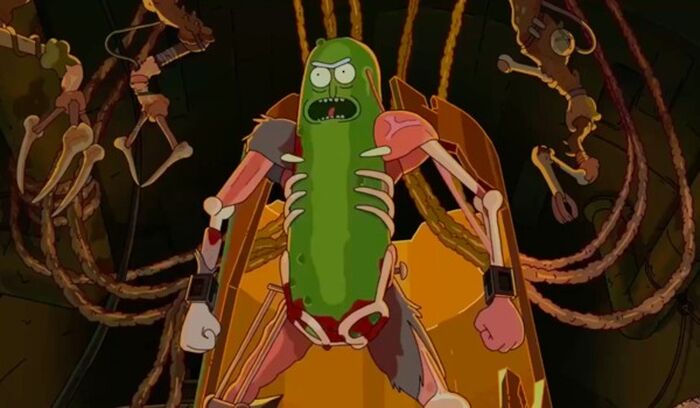Electric Dreams review: the sky’s the limit
Halfway through Channel 4′s new Philip K. Dick series, Alex Campbell takes a critical look back over the series so far

Philip K. Dick is probably one of the most famous sci-fi writers, and as such, his works have already been adapted to the screen numerous times, most notably as films such as Minority Report, Total Recall, and Blade Runner. Obviously, this new series cannot go to the same visually bold or narratively elaborate extents that these big screen efforts have managed. Television is naturally hampered with a lower budget and a more constrained runtime. However, luckily for the show, Dick trades in high-concept, thought-provoking sci-fi, that is not always in need of the crispest cinematography or most seamless effects. With an imagination as rich and fluid as Dick’s, Channel 4 has made a bet that these concepts, drawn from his shorter, less well-known stories, will have all the intrigue needed to hold one’s attention, even when much of the expense is stripped away.
“The worlds have a good amount of visual flare, appropriate to the setting of each, and no two episodes feel like their design is the derivative of the other”
One of the most impressive aspects that the show nails in each episode is the efficient, yet very well-rounded world-building. Despite a very limited runtime, it is surprising how quickly one gets sucked into each of these original sci-fi worlds. The scripts manage to stitch in little patches of mythology which help enrich each universe, whilst never getting too bogged down in unnecessary detail. The audience is treated with respect, and assumes most of us will have seen enough sci-fi on screen before to fill in most of the blanks ourselves.
Each episode also has some clever production design, using what budget the show has well, which certainly helps to amplify the script’s efforts to world-build quickly. Whether it is the dusty streets of dystopian earth slums, the glowing panels of a luminescent space tour-ship, or even the clean white efficiency of a futuristic company’s show room, the worlds have a good amount of visual flair, appropriate to the setting of each, and no two episodes feel like their design is the derivative of the other. Of course, this, in itself, is nothing too ground-breaking, with shows such as Doctor Who having accomplished a similar vibe for over half a century, but nevertheless it is certainly a necessity for a show like this one.

It would be easy for a show so focused on its mysterious, sci-fi plots to simply use cookie-cutter protagonists as vehicles to drive the audience through a series of twists. And while stereotypes are definitely used for some of the supporting players, such as the occasional corrupt politician or doting housewife, the main characters are often incredibly well realised. The sensitive dialogue gives one a real understanding of their inner conflicts, and often leads to unexpected moments of tenderness or heartbreak. Luckily for the show, Channel 4 also managed to amass some very experienced and well-known thespians to encompass these roles, including Steve Buscemi, Bryan Cranston and Timothy Spall. Spall is particularly compelling in ‘The Commuter’, bringing a depressing translucency to his role which seamlessly morphs into a frail and almost reluctant courage.
Yet, while the set-up and characters are definitely impressive, each episode seems to struggle with its follow-through. One might assume that in a show as filled with twists as this, it is only logical that not all of them will pay off. But this is not really a good enough reason to excuse sloppy endings. There is an unfortunate silliness that sometimes develops, and it can seriously suck one out of the story. There are also unanswered questions aplenty, which sometimes works – such as in Spall’s episode, giving a contemplative ambiguity – but then just feels rushed in other episodes. Ultimately the quality of the endings may boil down to how much benefit-of-the-doubt one personally gives the writers (and Dick) in believing their concepts are more clever than they are half-baked.
Overall, there is definitely some visceral, original entertainment to be had here, with rich worlds inhabited by even richer characters. And if one does not mind the sometimes-disappointing payoffs, there is a good amount of cerebral, thought-provoking ideas to be enjoyed in Electric Dreams. While it is not quite up there with today’s premier anthology series, Black Mirror, it certainly scratches that itch for unique, high-concept sci-fi while it is off the air, with a healthy degree of success
 News / Uni Scout and Guide Club affirms trans inclusion 12 December 2025
News / Uni Scout and Guide Club affirms trans inclusion 12 December 2025 News / Cambridge Vet School gets lifeline year to stay accredited28 November 2025
News / Cambridge Vet School gets lifeline year to stay accredited28 November 2025 News / Cambridge study finds students learn better with notes than AI13 December 2025
News / Cambridge study finds students learn better with notes than AI13 December 2025 Science / Did your ex trip on King’s Parade? The science behind the ‘ick’12 December 2025
Science / Did your ex trip on King’s Parade? The science behind the ‘ick’12 December 2025 News / Pembroke to convert listed office building into accom9 December 2025
News / Pembroke to convert listed office building into accom9 December 2025








